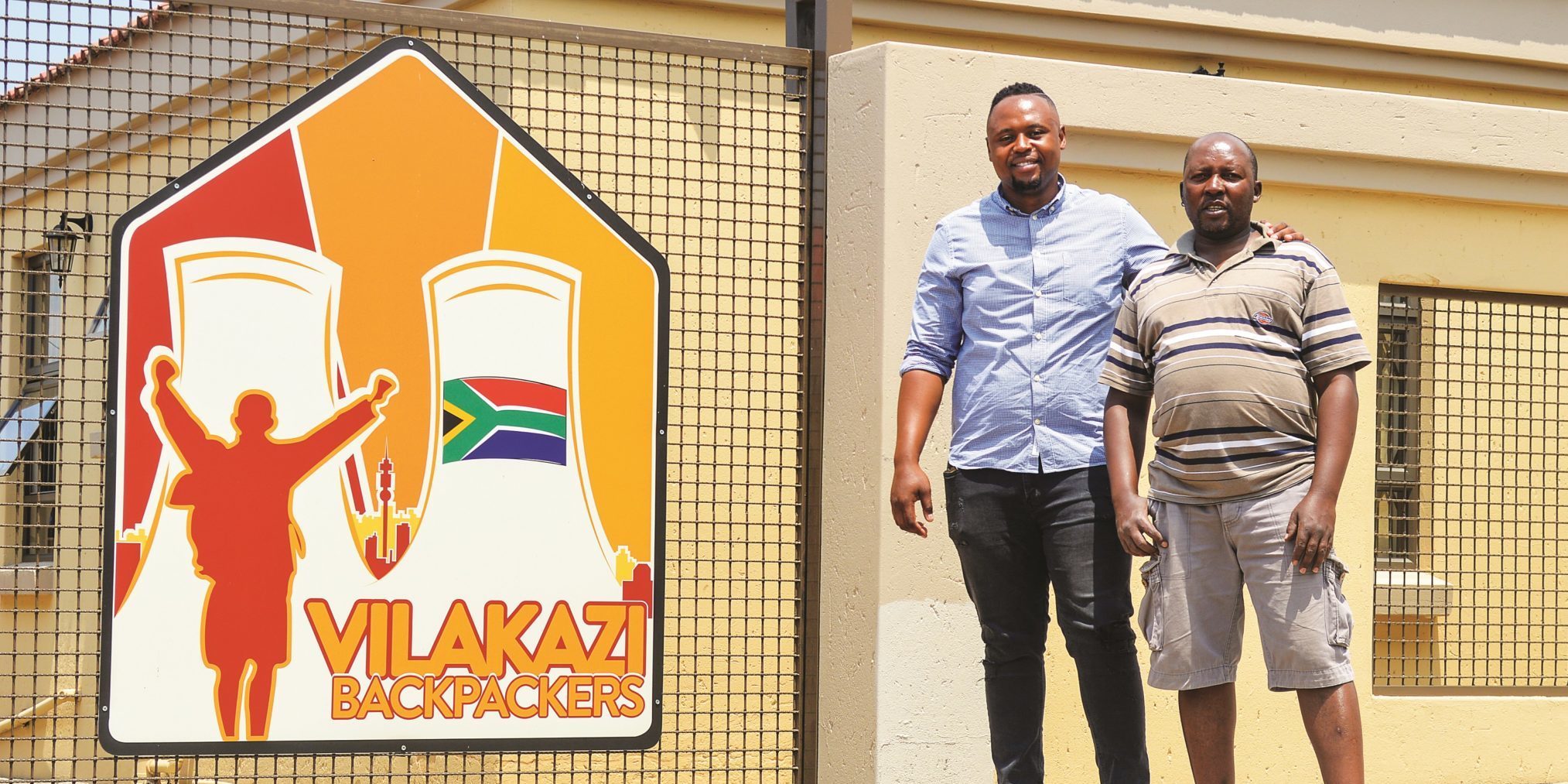Tourists in Soweto, the township southwest of Johannesburg in South Africa, now have more options for staying in the same neighbourhood that was once home to two Nobel laureates, Nelson Mandela and Archbishop Desmond Tutu.
Here, through accommodation app Airbnb, locals are increasingly turning entrepreneurs throwing open their homes for visitors wanting to savor Kasi life. As many as 20 Soweto homes are listed hosts on the Airbnb search engine – and the list is growing.
Take Nelson Tiko Mashele, a 33-year-old born and bred in Soweto, who founded Vilakazi Backpackers on the famous Orlando West street with his father, and which is located five minutes from the homes of Mandela and Tutu, and 10 minutes from the Hector Pieterson memorial.
Mashele is one of the youngest Airbnb hosts in Soweto, and his establishment one of the newest in the area. He says 70% of his guests are locals, the rest international, and business is looking good.
The day we visit, we are ushered into his spotless living room. A coffee table in the middle of the foyer is laden with sightseeing pamphlets. Hip hop music is playing in the background. The seven-bedroom house is well-appointed and Mashele charges R299 ($25) a night.

A room at the Vilakazi Backpackers costs R299 ($25) a night. Photo by Karen Mwendera.
That’s not a bad bargain for the local life that his guests, who he says are mostly from America, Germany, Brazil and France, want to experience.
According to Airbnb, most guests choose to live like locals. Mashele says they would rather walk to tourist destinations and buy local food from the outlets on the famous Vilakazi Street.
One of Mashele’s partners is Soweto Outdoor Adventures run by Kgomotso Pooe, also his long-time friend. Their collaborations offer his guests quad-bike tours, paddling and boating rides, trips to Orlando Towers and indulging in local cuisine such as magwenyas (deep-fried dough balls) with atchar and white liver and kota (half loaf of bread filled with curry), ending the day with a shisanyama (meat cooked over an open fire).
On the opposite side, in Orlando East, is a bed-and-breakfast in operation for over 16 years. TDJ’s BnB is a home-owned business catering for local and international visitors. Their aim this year is to start using the Airbnb services to help increase their profits.
“We are looking forward to getting new guests from all over the world,” says TDJ’s manager Nomthandazo Ntshingila.
She says joining Airbnb will give her an edge moving her numbers higher than the average 30 visitors she receives per month. Currently, a room at TDJ’s costs R454 ($38) a night.
For a more authentic experience, tourists can taste African beer brewed at the guest house. Another hotspot guests can visit is Sakhumzi, a Sowetan shisanyama restaurant and bar.
A key difference between Mashele’s and Ntshingila’s businesses is that the former has Wi-Fi on site allowing him to stay active on social media.
“One of the requirements to host with Airbnb was to offer Wi-Fi services to potential clients. We then got Wi-Fi before listing on the app,” says Ntshingila.
Hosts need to be constantly connected to an online platform and keep the most updated information on their availability and business.
The accommodation hosting platform tells FORBES AFRICA they are working on refining their offerings and making “regular updates to ensure people get exactly what they are looking for”. It’s clear that for the app to take off in townships like Soweto, homeowners need to be empowered with technology.
Airbnb says it’s planning to invest $1 million from 2018 to 2020 to promote and support community-led tourism projects in Africa. The project aims to support training in hospitality and technology for township residents.
Indeed, such investments will also help upskill those living in less-developed areas within Soweto such as Kliptown and Pimville, and as a result, reduce the barriers for entrepreneurs wishing to rent out their homes and bring in precious tourism dollars, much-needed in today’s difficult times.
